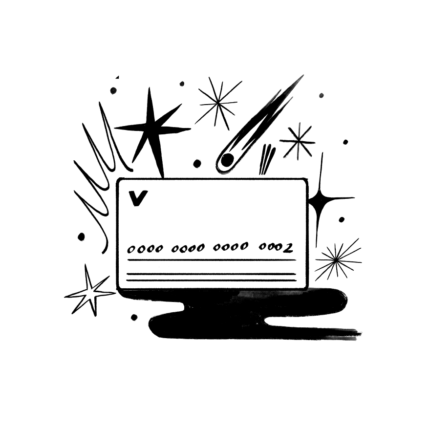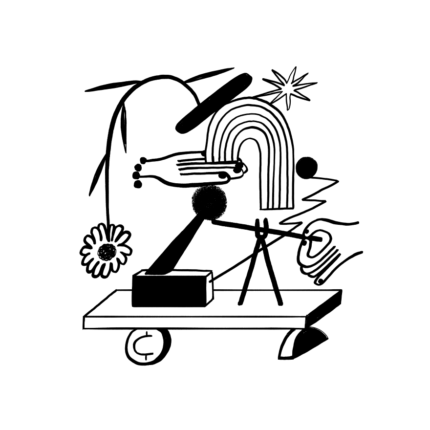
3 ways mindfulness is helping me through quarantine
Melanie Lockert, author and host of the Mental Health and Wealth Show, shares her transformative experience with an 8-week mindfulness course during quarantine.
I’ve been in therapy and using medication to manage my mental health for many years now. But about mid-way through quarantine, my uncertainty about the future greatened. I began looking for something a little extra to add to my healthy coping skills toolbox.
So many of us are tethered to the pain of the past or anxious about the uncertainty of the future that we’re never really living in the present. We go day-to-day on autopilot, not remembering what we had for lunch or how we got home from the store. That’s where mindfulness comes in.
What is Mindfulness?
Mindfulness is the practice of being fully present and engaged in the moment. That might sound easy but it’s actually quite hard! But as you practice and improve, it becomes easier and can start to have an enormous impact on your life.
The mindfulness course I found was focused on Mindfulness-Based Stress Reduction (MBSR). Over the eight weeks, I watched videos, read articles, and most importantly, did 30 minutes of mindfulness practice each day. The exercises were varied and included a Body Scan, sitting meditation, some yoga, and more.
I took my course in tandem with therapy, which I highly suggest for anyone else taking the course. Most therapists offer Mindfulness-Based Stress Reduction (MBSR), and luckily, it’s almost always an eligible health savings account (HSA) expense. The mindfulness course changed my life and is helping me survive quarantine. Here’s how.
1. Mindfulness is Helping Me Stay Present & Appreciative
I knew that a lot of my depression and anxiety was rooted in my uncertainty about the future. But I didn’t realize how hard it would be to let go of my fear and be in the moment. I suppose that’s why it’s often called a mindfulness practice. It’s something you need to practice day in and day out and get better at over time.
Given everything that is going on, it’s normal to be anxious and fearful of the future. Through mindfulness, I take inventory of the present moment. I am safe. I am healthy. I have food. I have shelter. When I take stock of all of those things, I realize nothing is wrong in this moment.
Starting a mindfulness practice can be a bit like bursting a bubble. You start seeing things you never noticed before, simply because you’re paying attention. When I started the mindfulness practice, I was astonished by how many things I had previously overlooked (there’s a gorgeous rosemary bush in my neighbor’s yard, how had I never noticed it before?!)
2. Mindfulness is Helping with My Spending
A big culprit in overspending is mindless spending. You spend without really thinking and suddenly your credit card bill is higher than you thought (oops). Through mindfulness, I can be more calculating. Do I really want this? Do I need it? What kind of value will it add to my life?
I’ve also found myself spending less because mindfulness has helped me be grateful for what I already have.
When you’re focused on gratitude, you enjoy and appreciate what you already have and aren’t focused on the things you don’t have. Because I appreciate what I have, I no longer desire much else, which has significantly decreased my spending. This change also means I’m saving more, which is an added bonus.
3. I’m More Mindful of My Financial and Mental Health
Mindfulness has made me realize that all we have is this present moment. By focusing on that simple, pleasant fact, I’ve also become more mindful of how my financial and mental health coexist. I’ve noticed that needless or ill-considered spending often triggers my anxiety and vice-versa.
I’ve started to notice my triggers—when I’m irritable, apathetic, or fatigued—I end up spending more. When I start to notice those symptoms and it’s clear my mental health is waning, it’s up to me and me alone to make a change. That might mean taking time to meditate, taking a nap, putting away my phone, or reaching out to a professional, like my therapist, to check-in.
When it comes to financial wellness, I allocate a certain amount for savings and take care to be mindful of every purchase. When I do spend, I actually appreciate it more as well. Mindfulness has helped me re-evaluate my finances and make better choices as well as help me understand when it’s time to indulge in some self-care.
In other words, mindfulness is helping me make better decisions for my life and helping me keep track when I feel things are getting off course.
You Can Do This, Too
The good thing about mindfulness is that anyone can do it. It’s not a part of a specific religion or community and anyone can take advantage of it. It’s possible to work with a therapist who focuses on MBSR and, in most cases, the sessions are HSA-eligible—you just need to have a “letter of medical necessity” from a board-certified physician or qualified nurse practitioner.
Mindfulness has helped me feel more alive, appreciate things more, and help lessen my anxiety by bringing me back to the present moment. All of these tools have been such a gift during this difficult time. If you’re interested, check out MBSR therapy or courses in your area and check your HSA eligibility.


